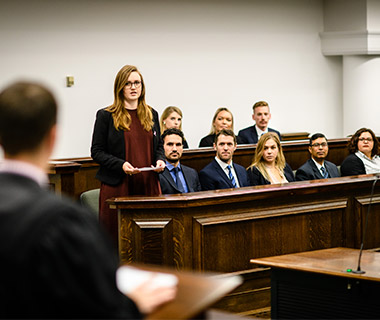How a jury trial works
The process of most jury trials is outlined below. Note that the order of events may vary from court to court.
The judge will usually talk to the jury at the start of the trial about what the jury must do. Lawyers for the prosecution and the defence will talk to the jury and call their witnesses one by one.
Witnesses will give their evidence.
Lawyers for the prosecution and the defence may each choose to sum up their case.
The judge will give the jury a summary of the trial and evidence and tell you how the law applies to the case.
The jury will go to the jury room and talk about the case and the evidence and decide whether the defendant is guilty or not guilty.
Once the jury has made its decision, it returns to the courtroom. The foreperson is asked if all jurors agree on the verdict, and if the jury agrees the defendant is guilty or not guilty of each charge.
If the defendant is found not guilty, the judge will tell them they can leave the court.
If the defendant is found guilty, the judge will usually set a date for sentencing. Before being sentenced, the defendant will either be remanded in custody, remanded on bail or be released.
The judge will then thank the jury for its service.
The court will let you know if you need to come back to court the next day for selection to another jury, or if you’ve finished your jury service.
